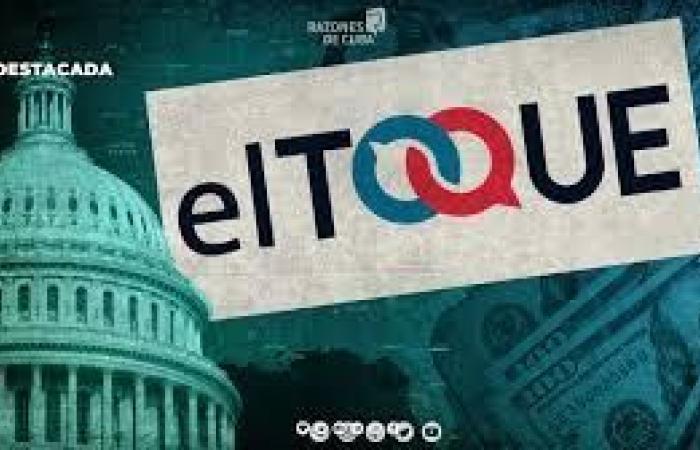These days, while the so-called El Toque exchange rate seemed to suffer an unexpected collapse, and after rising to around 400 cups per dollar, it fell to less than 300; A rigorous investigation titled On the Efficiency of the Informal Currency Markets: The Case of the Cuban Peso was published in the prestigious journal Computational Economics.
Computational Economics is a multidisciplinary journal that integrates computational science with all branches of economics, to understand and solve complex economic problems. Led by Hans M. Amman, professor at the University of Amsterdam, it presents new research on computational methods in econometrics, agent-based modeling, machine learning and optimization of dynamic systems.
The study, which has a solid mathematical basis, was sponsored by the Faculty of Accounting and Finance, and the Faculty of Physics of the University of Havana, under the authorship of four prominent academics: Alejandro García-Figal, Alejandro Lage-Castellanos , Daniel A. Amaro and R. Mulet. In this investigation, the supposed “scientificity” of the algorithm used by El Toque to calculate its exchange rates is called into question.
The authors use models of the Efficient Market Hypothesis – a concept initially developed by the renowned American economist Eugene Fama, in the 1970s – to justify why the algorithm used by El Toque “does not reflect the real price of the dollar in the market.” Cuban informal market.
They claim that this could be “because (that algorithm) is intentionally manipulated, or because the main source of information is not good.” They explain that “ad tracking in online chats cannot verify that transactions are actually occurring.”
As they argue, “the number of participants who actually define the market trend (by making large or frequent transactions) may be small, and they can manipulate the market.” This is a hypothesis to take into account in a context in which the import-export activity of small private companies is gaining space in the Cuban economy, and for many of them the informal market is their main means of access to the dollar currency.
In summary, the analysis shows that “relying on El Toque as an expression of the real value of the Cuban peso in the economy is, at the very least, risky.” «It does not meet the efficiency tests; and the finding that inefficiency can be generalized and persistent in the different stages of the series is especially worrying.
The text is extremely extensive, abundant with formulas, tables and graphs that can be contrasted, so we cannot summarize everything here; But what has been its impact among those “interested” in giving credibility to the El Toque rate?
We know that a prominent collaborator of that medium, perhaps its most active theorist, tried to discredit the study before it was published. He stated that “the theories of efficient markets mentioned in the text were not designed for a context with macroeconomic imbalances like the Cuban one.”
The statistical models are. I mean, they are archetypes; theoretical schemes of a system or a complex reality. The El Toque academic perhaps missed doing a Google search, in which similar studies can be found in contexts with strong macroeconomic imbalances. In fact, I accessed several recent ones in Argentina, where there is also an informal exchange rate known as the Blue Dollar, as well as high inflation and high fiscal deficit.
Another critical comment refers “that econometrics also uses types of statistical tests that, when applied, offer different results.” I wonder where are those other studies, on this matter, that offer different results.
In short, it is an opinion that bites its tail, because can it be said that El Toque’s algorithm has a scientific nature, when it supposedly does not allow an analysis with a recognized and standard scientific methodology? We already know, “that umpire strikes me out, so get another one.”
The curious thing is that, this week, El Toque has published a kind of editorial in which it completely ignores the study of the aforementioned Cuban academics. They say, however, that “since April 2024, a coordinated campaign by government actors associated with State Security and with propaganda spokespersons of the Communist Party began to delegitimize our information and the methodology we use.”
This is, of course, damage control; campaign that, by the way, is supported by other academics, whose media visibility, above all, is due to their activity in certain American media. These people, always “so informed” about the Cuban economic reality, suddenly ignore a study that was even initially presented at the Center for Studies of the Cuban Economy.
Such an omission is eloquent, and shows that the motivations are neither technical nor scientific, but political. They try to impose a misleading narrative through simplifications, fallacies, presuppositions, demonization of authorities, among other resources typical of the rhetoric of disinformation; So, therefore, they are mere accomplices in something that harms the Cuban people.


